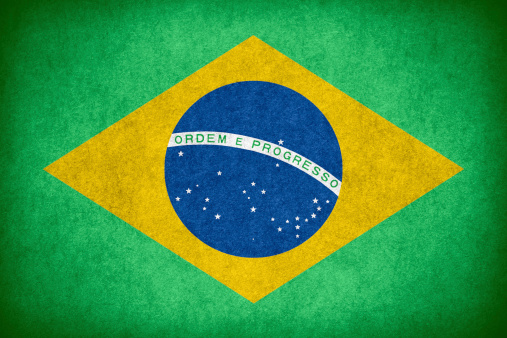With its huge oil company Petróleo Brasileiro S.A. (NYSE: PBR), or Petrobras, rocked by bribery probes, problems with back taxes and falling oil prices, the Brazilian economy has been injured and President Dilma Rousseff is also under suspicion for corrupt behavior. The nation’s financial health has begun to falter, and it could even lapse into recession.
Here is Brazil’s economy by the numbers.
Brazil’s Finance Minister Joaquim Levy recently told Bloomberg:
[His] proposal to reduce Brazil’s budget savings reflects the hard reality that a contracting economy has forced the government to scale back its ambitions for fiscal retrenchment.
This is substantially different from recent outside impressions of Brazil’s economy, which forecast strong growth.
According to the CIA World Factbook:
Characterized by large and well-developed agricultural, mining, manufacturing, and service sectors, and a rapidly expanding middle class, Brazil’s economy outweighs that of all other South American countries, and Brazil is expanding its presence in world markets
ALSO READ: 7 Countries Near Bankruptcy
The World Factbook put Brazil’s gross domestic product (GDP) at $3.7 trillion, the eighth largest in the world. However, the Factbook makes the point that GDP growth slowed to 0.1% last year, down from 2.7% in 2013.
The International Monetary Fund’s take on Brazil’s economy was a little different, based on its most recent visit to the country:
This 2014 Article IV Consultation highlights that Brazil’s growth has decelerated in recent years. The boost from decade-old reforms, expanding labor income, and favorable external conditions, which enabled consumption and credit-led growth and underpinned sustained poverty reduction, has lost steam. Investment has been sluggish, reflecting eroding competitiveness, a worsening business environment, and lower commodity prices. The IMF staff projects negative output growth of 1 percent in 2015, with some drag from tighter fiscal and monetary policies and from the cuts in investment by Petrobras, adding to the downward momentum in activity carried over from 2014.
The Wall Street Journal’s recent assessment of the economy is relatively the same and rests heavily on the problems at huge Petrobras and how they have rippled across the nation in general:
But Brazil’s outlook is unraveling. Chinese demand for its commodities slowed, opening up funding gaps for welfare, credit and construction programs launched in the good times. Brazil now risks losing its investment-grade rating, which could spark a chaotic selloff of its currency, economists say.
With the potential downgrade of its debt and a possible recession, Brazil will fall into the ugly cycle in which it needs capital but cannot raise it as interest rates will not help it aid its own economy.
ALSO READ: Countries With the Widest Gap Between the Rich and the Poor
It’s Your Money, Your Future—Own It (sponsor)
Retirement can be daunting, but it doesn’t need to be.
Imagine having an expert in your corner to help you with your financial goals. Someone to help you determine if you’re ahead, behind, or right on track. With SmartAsset, that’s not just a dream—it’s reality. This free tool connects you with pre-screened financial advisors who work in your best interests. It’s quick, it’s easy, so take the leap today and start planning smarter!
Don’t waste another minute; get started right here and help your retirement dreams become a retirement reality.
Thank you for reading! Have some feedback for us?
Contact the 24/7 Wall St. editorial team.


